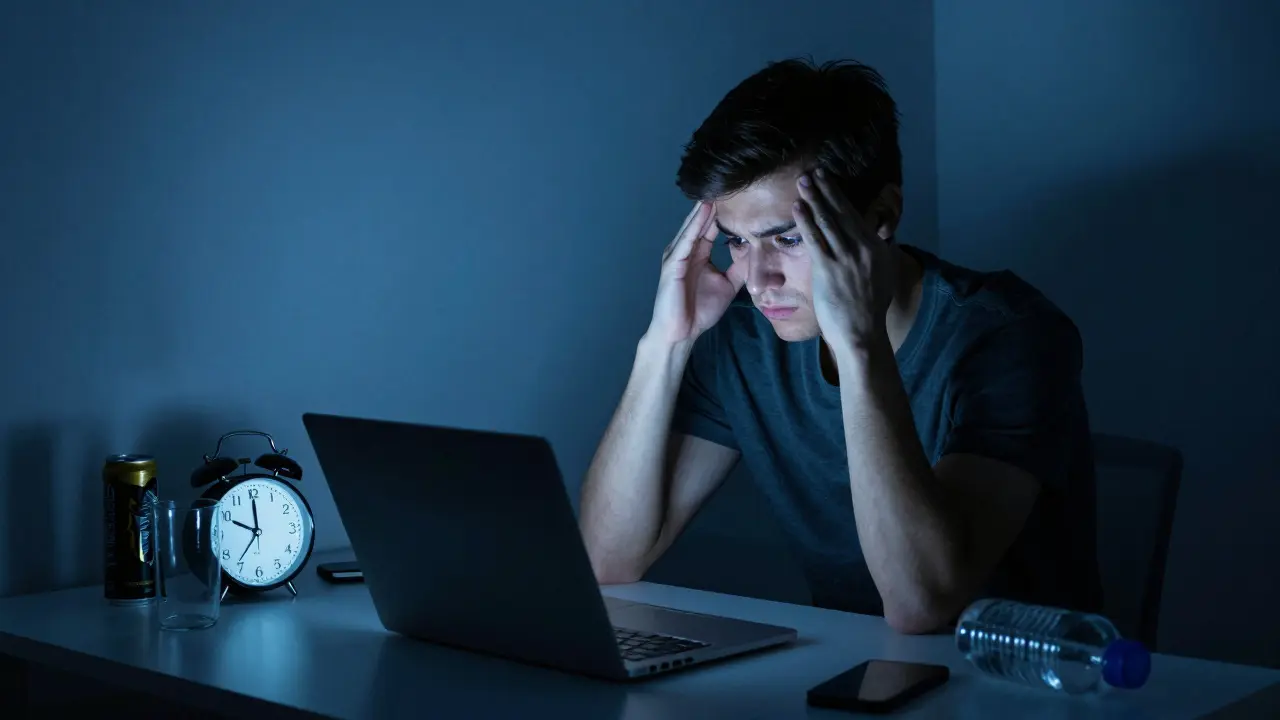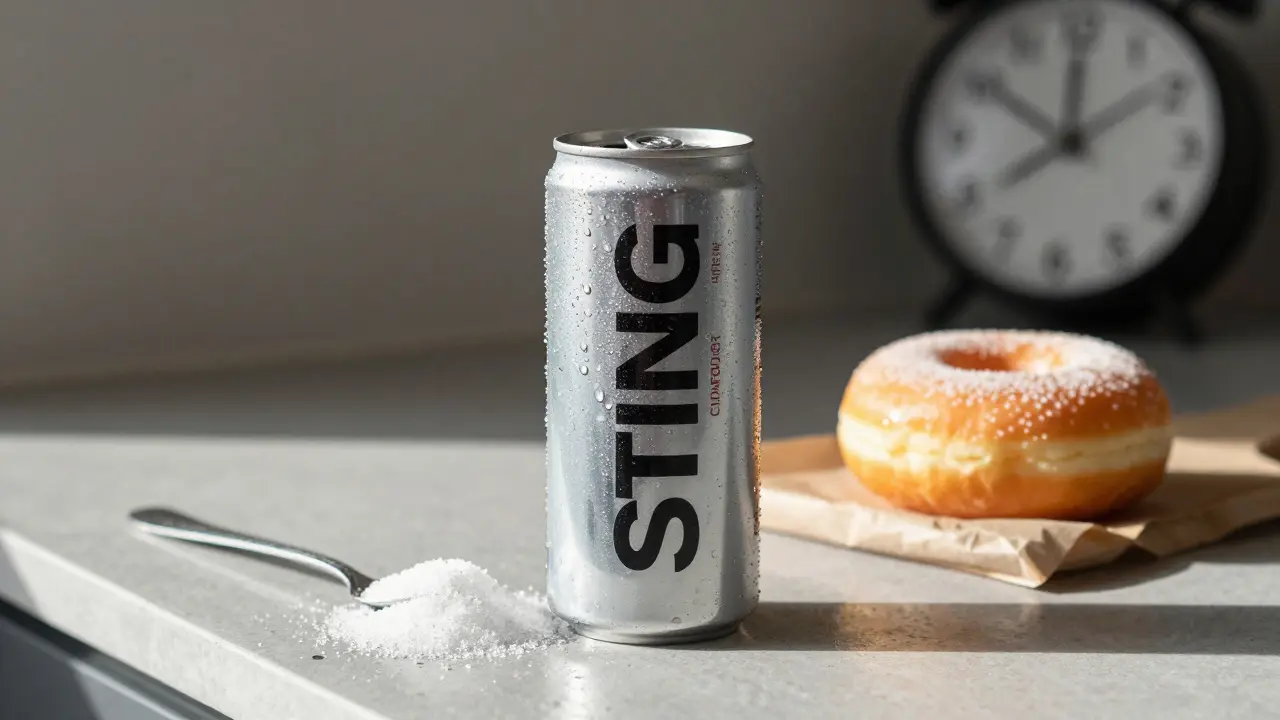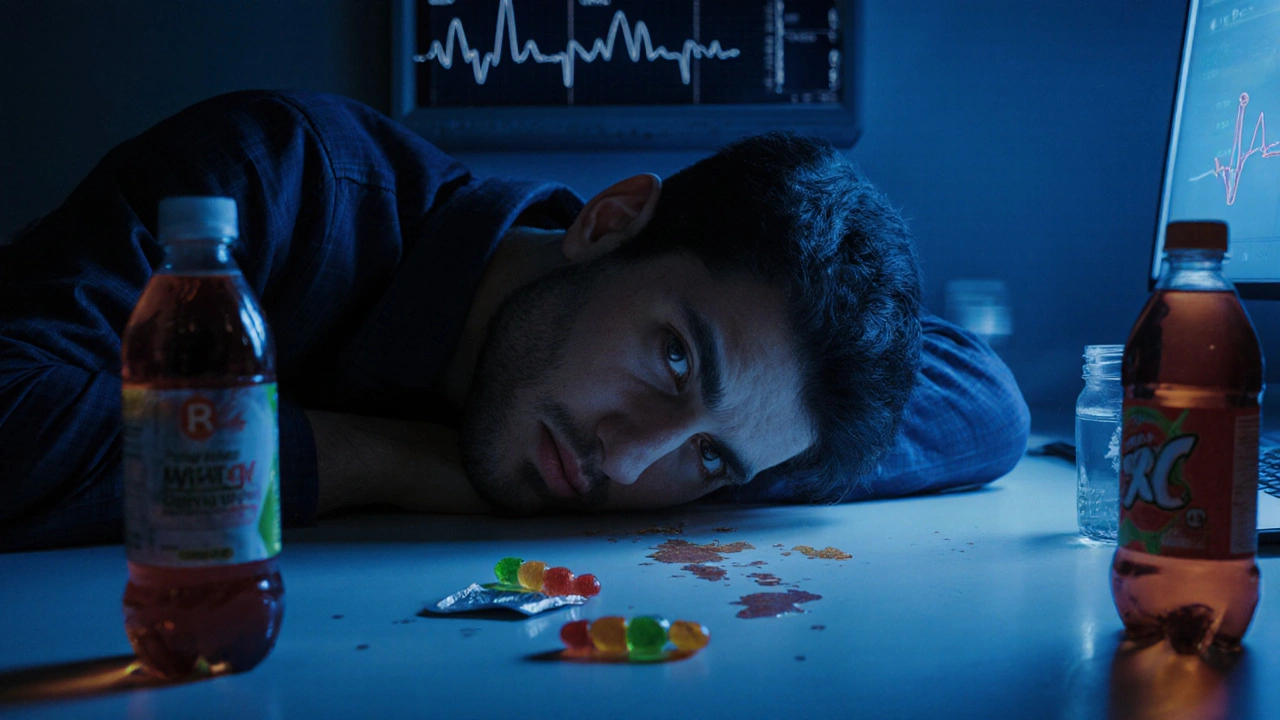Caffeine Overdose: Signs, Risks, and How to Stay Safe
When you push past your body’s limit with caffeine, you’re not just jittery—you could be facing caffeine overdose, a dangerous condition caused by consuming too much caffeine, often from energy drinks, coffee, or supplements. Also known as caffeine toxicity, it’s not just a myth—it’s a real medical event that sends thousands to the ER each year. Most people think they can handle more because they’ve had three energy drinks before and lived to tell about it. But your tolerance doesn’t change how your body processes caffeine. Once you hit around 400 mg in a short time, your nervous system starts to scream. Go over 1,200 mg, and you’re in danger zone.
Energy drinks, concentrated sources of caffeine, sugar, and stimulants marketed for quick energy are the main culprits behind recent spikes in caffeine overdose cases. A single can of some popular brands packs 200 mg or more—add a cup of coffee, a pre-workout powder, and a chocolate bar, and you’ve crossed the line without realizing it. Symptoms like a racing heart, shaking hands, nausea, or panic aren’t "just how you feel after a long day." They’re warning signs your body can’t handle what you’ve given it. Heart palpitations, an irregular or abnormally fast heartbeat often triggered by excess caffeine are one of the most common red flags. If your chest feels like it’s pounding out of your ribs, stop. Drink water. Sit down. Don’t reach for another can.
What most people don’t realize is that caffeine overdose isn’t about how much you drink—it’s about how fast you drink it. Chugging three energy drinks in an hour is very different from sipping one over the course of the day. Your liver can only process about 100 mg of caffeine per hour. Anything beyond that builds up, and when it hits your brain and heart, things go sideways. Kids and teens are especially at risk because they often don’t know their limits—and some brands even market to them with candy-like flavors and flashy packaging.
There’s no magic fix once you’ve overdosed. You can’t sweat it out, drink more coffee, or "power through." The only real solution is time and, in severe cases, medical care. Hospitals treat caffeine overdose with IV fluids, heart monitors, and sometimes medications to slow the heart rate. Prevention is way easier than recovery. Know your limits. Read labels. Don’t mix stimulants. And if you’ve ever felt your heart skip or your hands shake after an energy drink, that’s your body telling you to back off.
Below, you’ll find real stories, science-backed warnings, and practical tips from people who’ve been there—and learned the hard way. Whether you’re trying to cut back, help a friend, or just understand what’s really in that can you’re about to open, these posts give you the facts without the hype.
Drinking two energy drinks a day may seem harmless, but it can lead to heart issues, sleep loss, and sugar overload. Here’s what your body really goes through-and what to do instead.
If your heart is racing after an energy drink, you’re not alone. Learn how to calm it down fast with breathing, cold water, and rest-and how to prevent it from happening again.
Sting energy drink packs a dangerous mix of sugar, caffeine, and artificial additives that can harm your health over time. Learn why it's not a real energy source - and what actually works instead.
What happens if you consume 1,000 mg of caffeine? It's not energy-it's a dangerous overload that can spike your heart rate, wreck your sleep, and trigger panic attacks. Here’s what your body actually goes through.




